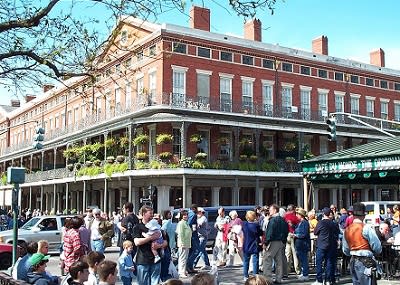Should tour guides be required to pass history tests?
There is now a petition before the Supreme Court to settle an interesting First Amendment question: Should local tour guides be compelled to pass history and background tests to speak with paying tourists?
The case is called Kagan v. City of New Orleans, and it is among many petitions sitting at the Court. It also references a similar case in Washington, D.C., where two tour guides won the right to practice without passing a history test to gain a license.
While there is no guarantee the Court will ever take the case, it does present some interesting discussion points.
The Institute For Justice, a Washington-based libertarian law firm, filed the petition on behalf of Candance Kagan and three other aspiring New Orleans tour guides, appealing a Fifth Circuit Appeals Court decision. Two names well-known to Constitution Daily readers, the CATO Institute’s Ilya Shapiro and UCLA’s Eugene Volokh, also filed a brief supporting Candance Kagan.
An equally high-profile name, former Acting Solicitor General Neal Katyal, wrote the response brief for the City of New Orleans.
The question posed to the Supreme Court by Kagan’s lawyers is simple: Does New Orleans’ tour-guide licensing requirement violate the First Amendment?
The counter question posed by the City and Katyal, is a bit longer. The City of New Orleans says it doesn’t regulate the First Amendment right of tour guides to speak, even if the content isn’t flattering about New Orleans. Instead, it wants the Court to examine if the City presented enough evidence to overcome First Amendment concerns by proving the unlicensed tour guides posed a threat to the tourists and the tourism industry.
The Fifth Circuit Appeals Court issued a unanimous decision that supported the City of New Orleans. It noted that while the city ordinance required people who gave paid tours to pass a written or verbal history test, along with background and drug tests, there wasn’t a constitutional conflict.
“New Orleans, by requiring the licensees to know the city and not be felons or drug addicts, has effectively promoted the government interests, and without those protections for the city and its visitors, the government interest would be unserved,” the lower court said.
The Institute For Justice argued that the decision in a related case in Washington, D.C., Edwards v. District of Columbia, presents such a conflict that the Supreme Court needs to resolve that could affect millions of people seeking occupational licenses.
The District of Columbia Circuit Court of Appeals rejected the case made by the local government there on the grounds that the government didn’t present enough evidence that licensing tour guides protected the public.
“As occurred here, explaining how the regulations do so renders the government’s counsel literally speechless, we are constrained to disagree,” the court said.
In their brief, Shapiro and Volokh said the decision in New Orleans had the effect of limiting content-based speech. Tour guides speech can’t be determined on the basis of if they are speaking to paying customers, they stated. “The right to speak cannot be conditioned on passing a history test,” they argued.
The city and Kaytal said the basic facts of the New Orleans and Washington cases are different, and that New Orleans proved that unlicensed tour guides presented a threat to the city’s tourism business, while Washington didn’t.
“That difference stems from different facts, not from different legal standards,” they stated. “Two courts applied the same legal test to two different situations and reached two different conclusions.”
The City of New Orleans believes that the Fifth Circuit Appeals Court’s decision was consistent with Supreme Court precedents about free speech, and that the tour-guide ordinance doesn’t regulate free speech in any fashion.
Another factor in the case could be how the District of Columbia Circuit Court of Appeals reached its conclusion.
In December 2014, the Harvard Law Review criticized the District of Columbia Appeals Court’s expectations of better proof presented by the local government to make its case.
“In a First Amendment challenge to a content-neutral regulation, courts typically constrain themselves to evaluating the government’s case with deference. By instead challenging the government to convince it of the necessity of the regulation, the Edwards court departed from that standard,” it said.
Recent Stories on Constitution Daily
Podcast: Should elected judges be allowed to ask for donations?
Five big myths about Samuel Adams in the History Channel series


